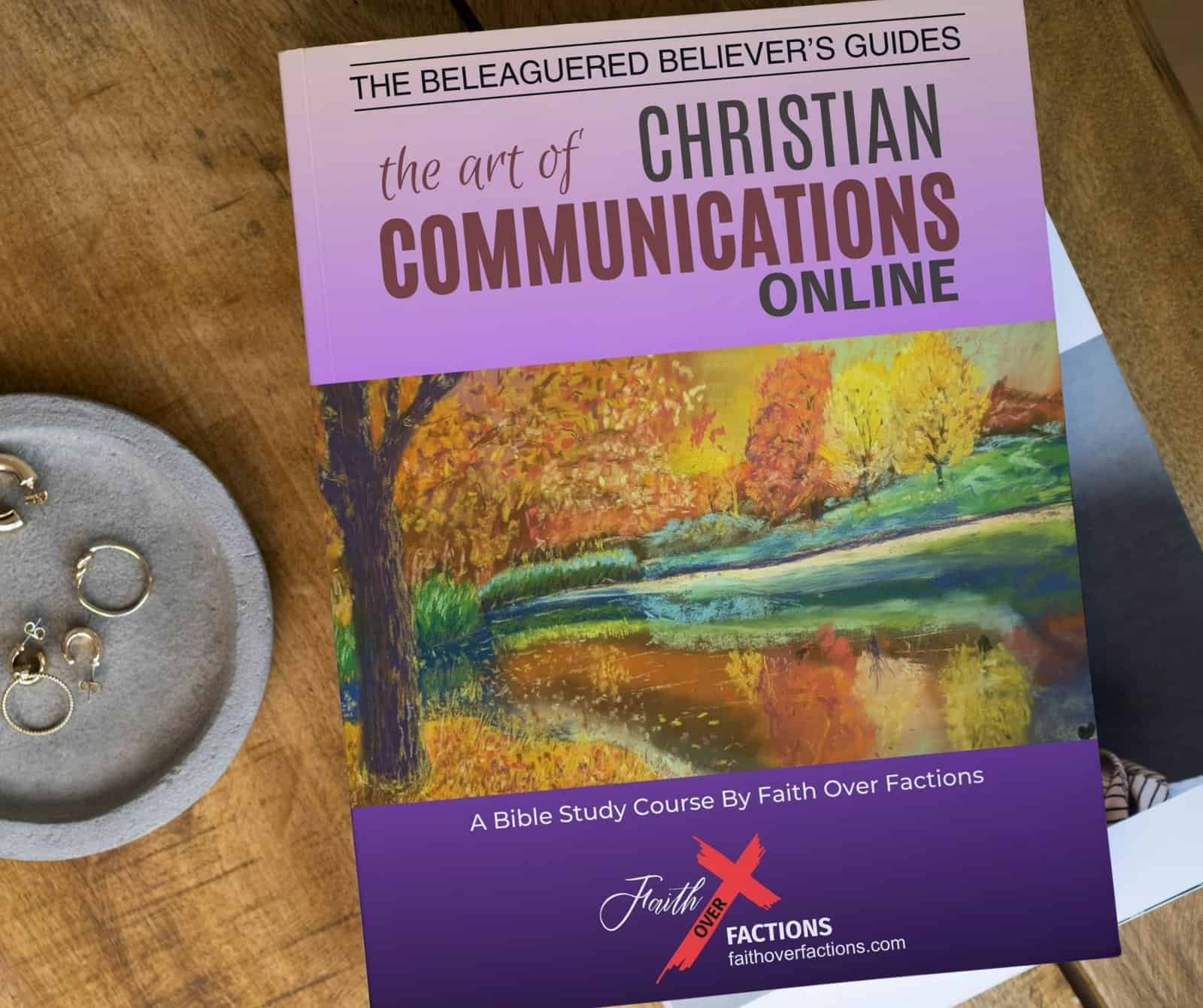
When belonging becomes a battleground
Why do so many churches—meant to be homes of welcome—become gates of exclusion? It’s not always loud or political. Sometimes it’s the quiet refusal to help, the subtle cold shoulder, the smug sense of being the “right kind” of Christian. And sometimes, it’s the louder voices that try to baptize nationalism as gospel. Let’s be clear: that isn’t Christianity. That’s anti-Christian. But even beyond that distortion, many of us encounter the everyday ways religious tribalism creeps in, wounding hearts that Christ meant to heal.
Tribalism in the church matters because it distorts the very heart of the gospel. The cross is not a flag of factions. It is a door wide enough for every weary soul. When Christ stretched out His arms, He was not drawing tight borders but tearing down walls. The invitation was not for the polished or the perfect, not for a select group that got the rituals “right,” but for the broken, the doubting, the outsiders. Yet two thousand years later, many Christians still guard the door as if it were theirs to open or close.
That’s why this reflection matters. Because whenever belonging becomes a battleground, the spiritual progress of the people who need the gospel the most are at risk.
Anchor in the Word
Key Verse
“There is no longer Jew or Gentile, slave or free, male and female. For you are all one in Christ Jesus.”
Galatians 3:28 (NLT)Key Scripture Context
Paul wrote these words to a community fractured by religious and cultural divides. The Galatians were tempted to build their faith on boundary lines—who belonged, who didn’t, who had the right rituals, who measured up to tradition. Paul’s message cut straight through: in Christ, the walls fall.
These weren’t abstract divisions. They touched every corner of life: food, friendship, marriage, identity. To say “there is no longer Jew or Gentile” was to strike at the core of deeply held categories. It was not comfortable. It was not safe. But it was gospel.
What We’re Facing
When superiority poisons fellowship
Maybe you’ve felt it—the way a smile fades when you mention a different denomination. The silence when you ask for help and no one shows up. The whispered comment that suggests your faith is “less than” because you don’t worship their way. Maybe you’ve tried to visit a new church only to feel like an intruder, an outsider who hasn’t learned the unspoken rules. These wounds are real.
They tell us that belonging is conditional, that God’s family has secret tiers. That if you don’t sing the same songs, share the same political stance, or affirm the same set of non-essentials, then your faith is suspect. Yet Scripture says the opposite: “You are all one in Christ Jesus” (Galatians 3:28).
Religious tribalism wears many faces:
Denominational pride that insists one branch of the family tree is the only true one.
Doctrinal gatekeeping that elevates secondary issues into tests of salvation.
Cultural superiority that confuses tradition with truth and shames those who don’t conform.
Subtle exclusion that withholds fellowship from the poor, the disabled, the newcomer, or anyone who doesn’t “fit.”
It may not always roar from a pulpit; often it whispers in pews, potlucks, and prayer meetings. But whether loud or quiet, it divides the Body Christ prayed would be one.
Then and Now—Drawing Parallels
In the first century, the church wrestled with who belonged: Jews or Gentiles? Circumcised or not? Paul and Peter themselves had tense debates about it (see Galatians 2:11-14). For Jewish believers, centuries of covenant identity had taught them to draw sharp lines. For Gentiles, the message of Christ was radical welcome. The clash was inevitable.
Today, the lines are different—denominational barriers, worship styles, cultural identities, political loyalties. But the tribal impulse remains. What they struggled with in Galatia, we still struggle with now: Do we trust Christ’s welcome enough to extend it without condition?
Consider how quickly churches today fracture. A disagreement over worship music splits a congregation. A debate over political issues creates factions. Even differences in how people pray, dress, or educate their children can become dividing lines. In the early church, it was circumcision and food laws. Today, it’s often culture wars and denominational rivalries. The details change, but the spirit is the same.
Paul’s answer then still applies now: Christ is enough. The gospel is wide enough. Our unity is not found in uniformity but in the Spirit who binds us together.
Theological Truth in Plain Language
The gospel is not a club to join; it is life to receive. Christ doesn’t divide His table into “worthy” and “unworthy” sections. He tears down the walls that we are so quick to build.
When churches create hierarchies of belonging—who counts, who doesn’t—they betray the One who broke bread with tax collectors, touched lepers, and welcomed women to sit at His feet. As Dietrich Bonhoeffer once wrote, “The Church is the Church only when it exists for others.” Tribalism shrinks the church inward. Christ expands it outward.
The truth is simple but hard: the gospel levels us all. Every one of us comes to the cross with empty hands. Every one of us is saved by grace, not pedigree. And if grace is the only ground we stand on, there is no room for superiority.
Practical Moves of Faith
Notice the Divide
Pay attention to when your language, tone, or actions imply “us versus them.” Do you speak as though your church, denomination, or tradition is the only faithful one? Do you dismiss other Christians as shallow or “not serious”? Naming the divide honestly before God is the first step to healing it.
Practice Table Fellowship
Invite someone outside your “circle” to eat with you, pray with you, walk with you. Break bread where barriers once stood. Nothing dismantles tribalism like shared life. Meals open doors that arguments never will.
Refuse the False Gospel
When voices—whether in pulpits or politics—claim Christ for their own power, remember: that is not Christianity. That is an idol wearing His name. We can respect differences without surrendering the truth that Christ’s kingdom is not of this world (John 18:36).
Ask God for Humility
Pray: “Lord, teach me to see my brothers and sisters as You see them—equal, beloved, redeemed.” Humility doesn’t mean ignoring truth; it means remembering that truth belongs to God, not to us.
More Light for the Journey
Romans 15:7 (NLT)
“Therefore, accept each other just as Christ has accepted you so that God will be given glory.”
→ God’s glory shines when our welcome mirrors His.1 Corinthians 1:10 (NLT)
“I appeal to you, dear brothers and sisters, by the authority of our Lord Jesus Christ, to live in harmony with each other. Let there be no divisions in the church.”
→ Division is not a mark of strength, but a wound in the body of Christ.Ephesians 2:14 (NLT)
“For Christ himself has brought peace to us. He united Jews and Gentiles into one people when, in his own body on the cross, he broke down the wall of hostility.”
→ The cross doesn’t build barriers; it destroys them.James 2:1 (NLT)
“My dear brothers and sisters, how can you claim to have faith in our glorious Lord Jesus Christ if you favor some people over others?”
→ Favoritism is incompatible with faith.John 13:35 (NLT)
“Your love for one another will prove to the world that you are my disciples.”
→ Our witness depends not on our tribal markers, but on love.
Let’s Walk This Out Together
Tribalism may feel normal, but it is not inevitable. The Spirit within us leads toward unity, not division. Every time we choose welcome over walls, we echo the heart of Christ. Every time we extend grace where suspicion might rise, we bear witness to the kingdom that cannot be divided.
The early church had every reason to splinter: Jew and Gentile, rich and poor, slave and free. Yet by the Spirit’s power, they became one body. Today we are invited into the same miracle.
Call to Action: Share your reflections in the comments or on social media using #OneInChrist. Let’s learn to live as a people of welcome—together.
Journaling Prompt
Walls or Welcome?
Where have you experienced exclusion in the name of faith? How did it shape your heart?
Where are you tempted to draw lines instead of extending grace?
What would it look like to practice table fellowship this week—with someone different from you?
How might humility reshape the way you view other believers?







